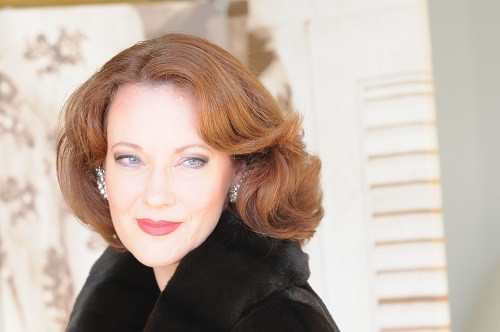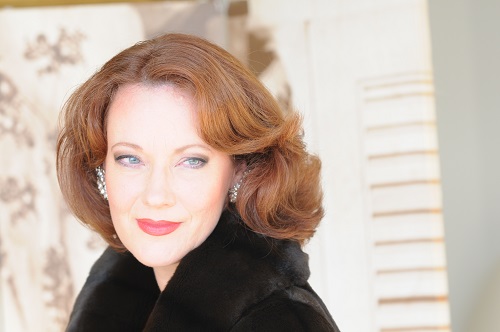 Switzerland Strauss, Salome: Soloists, Philharmonia Zürich / Ulf Schirmer (conductor), Zurich Opera, Zurich, 15.10.2017. (RP)
Switzerland Strauss, Salome: Soloists, Philharmonia Zürich / Ulf Schirmer (conductor), Zurich Opera, Zurich, 15.10.2017. (RP)

Cast included:
Salome – Catherine Naglestad
Herodias – Doris Soffel
Jochanaan – Thomas Johannes Mayer
Herodes – Gerhard Siegel
Narraboth – Evan LeRoy Johnson
Page – Deniz Uzun
First Jew – Iain Milne
Second Jew – Omer Kobiljak
Third Jew – Spencer Lang
Fourth Jew – Jonathan Abernethy
Fifth Jew – Cody Quattlebaum
First Nazarene – Ildo Song
Second Nazarene – Huw Montague Rendall
Dancer – Silvia Schori
Production:
Director – Sven-Eric Bechtolf
Stage Director – Nina Russi
Set Design – Rolf Glittenberg
Costumes – Marianne Glittenberg
Light Design – Jürgen Hoffmann
Choreography – Silvia Schori
It has been more than one hundred years since Salome premiered, and the opera has lost none of its power to shock. Strauss based his work on Oscar Wilde’s play of the same name, which comes straight out of the Bible. Director Sven-Eric Bechtolf has updated the action to the present day. The set is a round white chamber rimmed by a red banquette, with prison cells that rise up from the floor. It is sparse, slightly exotic (especially when washed in lurid, red light) and works perfectly. The production dates from 2010 and is in pristine condition. I somehow missed the previous runs, but it ranks with the best of the best from the former director Alexander Pereira’s final years in Zurich.
With every Salome, the buzz is about whether the soprano has the voice, can dance and will drop that last veil. Without a doubt Catherine Naglestad has the voice, but in Zurich she didn’t dance. That was left to Silvia Schori, who both choreographed and performed the Dance of the Seven Veils. Ulf Schirmer whipped the orchestra into a dizzying, dazzling swirl of sound which, combined with Schori’s sinuous and sensual movements (and astoundingly quick costume changes), generated a searing, erotic intensity, the likes of which I have never experienced in an opera house. When she dropped her last veil, Herod’s eyes jumped out of their sockets and his cork literally popped.
Beautiful and voluptuous, with flowing red hair, there is no doubt that Naglestad could have mesmerized with her dancing, but her voice and acting sufficed. Her fascination with Jochanaan was evident from the beginning, but it was the Page’s tender kiss of the dead Narraboth’s face that planted the seed that the prophet’s head would be her reward. Her face telegraphed her emotions throughout, and her descent into what can only be termed madness. Her voice may not have the steeliness of the most fabled Salomes, but she met the demands of the role head on and triumphed.
Thomas Johannes Mayer’s voice boomed through the theater as he proclaimed his prophecies and hurled his denunciations of Herodias’ lasciviousness from his subterranean cell. Above ground he was the Biblical John the Baptist come to life with his stringy hair and pallid, blood-spattered skin, wearing only a tattered hair shirt. Oblivious to Herodias’ rants and her daughter’s unwelcome attention, he stood still and serene, his gaze fixed on a heavenly kingdom and not the squalor of the present.
Doris Soffel has been singing since well before most of the people on the stage were born, and she is still in top form. Towering over her husband, Herod, her Herodias seethed with contempt of his antics and tirelessly goaded her daughter to demand the head of the noisome prisoner. The dance hardly fazed her, and as the music played she energetically acted out her own sexual fantasies. Her black and white dress had a long train which, with well-aimed kicks, she whipped into submission. Those kicks spoke volumes.
The real world is increasing intruding into my opera going, and Gerhard Siegel’s testosterone-fueled, lecherous Herod seemed to be totally in sync with the news out of Hollywood over the past week. He chased after Salome like a sex-crazed, libidinous oaf, often drooling and crawling on all fours. Her dance, however, afforded him but a brief moment of ecstasy, and once the fantasies evaporated his order to kill her was terse and blood-curdling. Siegel’s tenor blazed like a sword, cutting through and riding above the orchestra with ease. His voice was high on the list of the performance’s visceral thrills.
Evan LeRoy Johnson as Narraboth is a real find. In this production he does little more than stare at Salome and die, but even so he was a riveting stage presence. Standing tall with perfect posture, he looked like Britain’s Prince William heading to an ABBA-themed, fancy dress party in a white shirt splashed with gold and trousers tucked into knee-high boots. Johnson was simply dashing, as was his voice, a gleaming tenor that sliced through Strauss’ orchestration with ease. It might be worth a trip to Philadelphia next year to hear his Don José.
Deniz Uzun had sprained her ankle and sang the role of the Page from a box, while Nina Russi acted the part on stage. Uzun has a lustrous voice, perhaps a bit too prominent from her perch, but that could not be helped. The Page is silent after the first act, so acting mattered. Russi dispatched Salome with a quick, efficient stab of a dagger worthy of The Game of Thrones.
The Orthodox Jews who energetically and emphatically debated the nature of God were dressed in long black coats, and their bearded faces and sidelocks were topped by large traditional hats. The attire of the Nazarenes who speak of Jesus’ miracles and the attendant soldiers was understated, but the rest of Herod’s court was populated by a bunch of hedonists in party clothes.
The sounds that emerged from the pit were glorious. The brass blared and the strings soared in Strauss’ dramatic music. Schirmer whipped the music into frenzies of sound and let the climaxes bloom beautifully. He is a man of the theater and knows how to pace a performance. Balance between the singers on stage was fine, but I would have preferred that he allow Naglestad’s voice to ride over the crest of the orchestra rather than be part of its rich, complex texture. It was of little matter given the intensity of her singing, but I am a voice guy.
Rick Perdian
